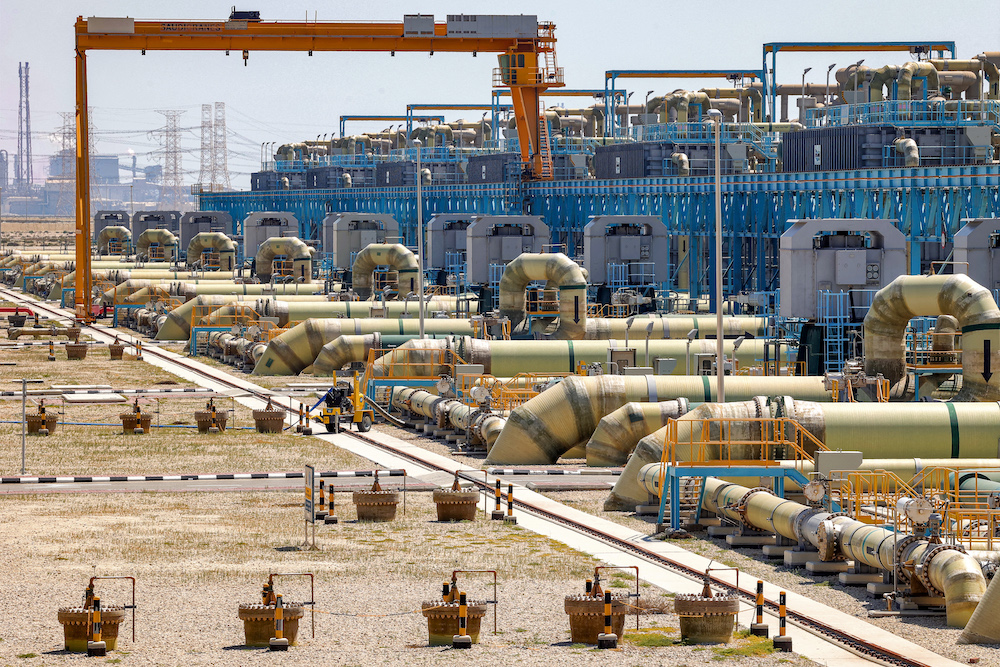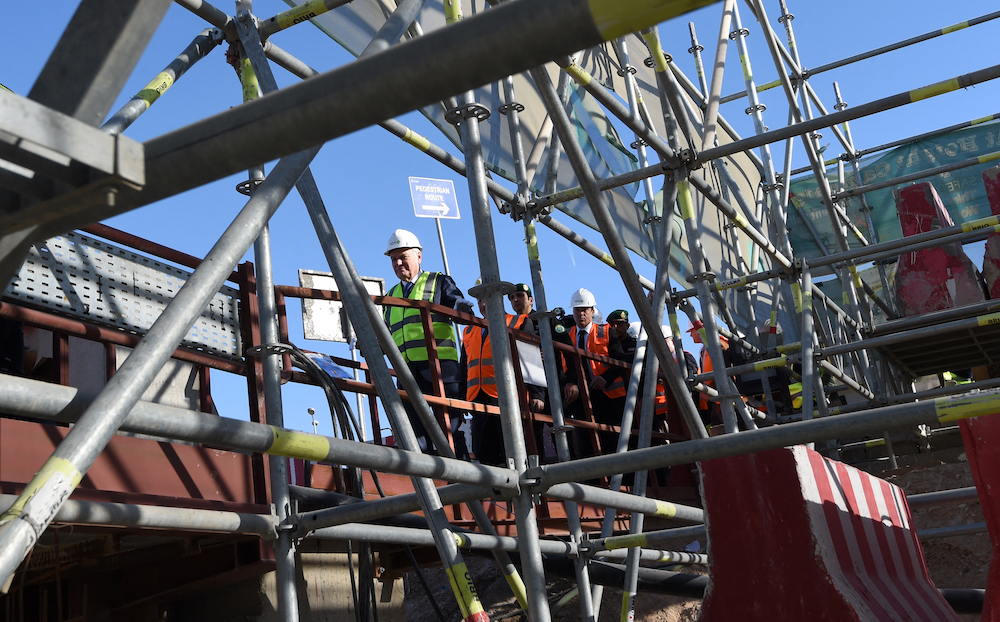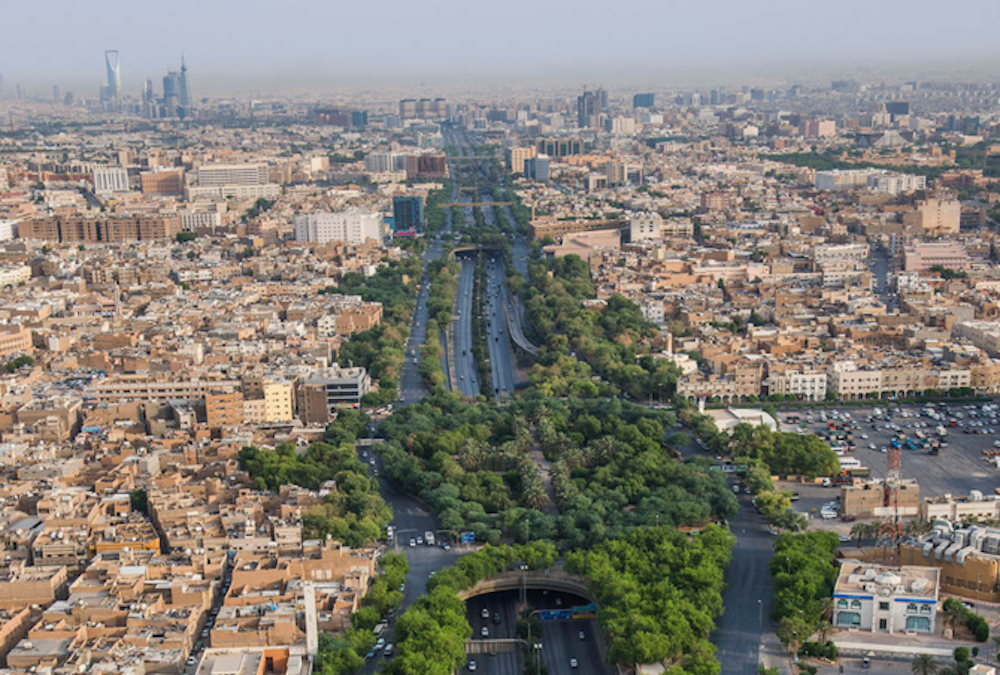RIYADH: Saudi Arabia is set to launch two multi-billion-dollar companies by the end of 2025 as part of plans to boost its communications and information technology sector.
The new tech firms are among a range of initiatives set out in the Ministry of Finance’s budget report, which also includes plans to launch a Saudi satellite for space weather research under the Artemis 2 mission.
Under the Kingdom’s economic diversification plan Vision 2030, Saudi Arabia is aiming to boost the technology sector’s contribution to GDP from 1 percent to 5 percent by the end of the decade.
The budget report also revealed a SR42 billion ($11.2 billion) allocation to the infrastructure and transportation sector for 2025.
The sector’s main functions include the development of roads, ports, airports, and real estate.
It also encompasses communications, information technology, data and artificial intelligence, and digital government. Additionally, it oversees postal services, space initiatives, and industrial cities.
Digital and infrastructure developments
The government is set to enhance data management by advancing the National Data Index, promoting responsible artificial intelligence adoption, and expanding the National Data Bank.
Smart city initiatives focused on safety and sustainability are also being prioritized.
In transportation, planned developments include new air carrier licenses for Dammam and Riyadh Airlines, expanded public transport services, and six new logistics zones at Saudi ports.
These efforts align with the Kingdom’s Vision 2030 strategy to create a modern, efficient, and innovation-driven economy.
The Kingdom is building a thriving digital economy by adopting advanced technologies, with data and AI as key enablers.
By fostering research, development, and innovation, and forming strategic global partnerships, Saudi Arabia aims to cultivate entrepreneurship and deliver groundbreaking solutions, establishing itself as a hub for technological excellence and sustainable development.
Central to this transformation is the Kingdom’s commitment to creating a business-friendly climate through a range of initiatives.
The Regional Headquarters Program offers compelling incentives, including a 30-year tax exemption, to attract global companies to set up their regional offices in Saudi Arabia.
This has significantly boosted the country’s foreign direct investment. In 2023, FDI inflows reached SR96 billion, according to the Ministry of Investment, exceeding the National Investment Strategy target of SR83 billion by 16 percent.
As a percentage of nominal GDP, FDI stood at 2.4 percent, aligning with the NIS goal.
The surge in investment licenses further highlights this growth, with the Kingdom issuing 3,810 licenses in the third quarter of 2024 — a 73.7 percent increase compared to the previous year.
Notably, information and communication technology licenses saw a 68 percent rise, underscoring the Kingdom’s strong emphasis on advancing its digital economy and technology sector.
Digital economy and space milestones
The Ministry of Finance report noted key recent achievements in the digital economy, including Saudi Arabia ranking sixth globally, and second among G20 countries, in the UN E-Government Development Index.
The Kingdom also ranked second among G20 nations in the ITU’s ICT Development Index 2024, which measures global progress in digital inclusion and infrastructure.
This index tracks global progress in digital inclusion and infrastructure, guiding policy and investments in technology, and reflects countries’ performance in digital adoption and connectivity.
Other achievements included 15 companies graduating from the Space Tech Entrepreneurship Incubation Program, attracting over SR41 billion in investments. The National Semiconductor Hub was also launched, focusing on localizing semiconductor technologies and fostering advanced education collaborations.
Many nations are harnessing space technology to drive digital innovation and economic growth. Saudi Arabia, as highlighted by the World Economic Forum, is leveraging space exploration to diversify its economy and build a technology-driven industry.
In a historic milestone, Saudi astronauts journeyed to the International Space Station for the first time in 2023, reflecting the Kingdom’s growing focus on space.
Under the Vision 2030 initiative, Saudi Arabia has committed $2 billion over the next decade to developing its space sector.
This investment is set to advance scientific research, enhance national security, and accelerate the Kingdom’s transition from a resource-dependent economy to a knowledge-based one.
Saudi Arabia has also announced plans to strengthen ties with NASA and global partners to advance space-related industries, digital innovation, and scientific collaboration.
During a recent visit to the US, Saudi Space Commission Chairman Abdullah Al-Swaha discussed strategic partnerships with NASA Administrator Bill Nelson and explored investment opportunities in space, AI, and the digital economy with US leaders.
AI and research advancements
The Kingdom made significant strides in data analytics, integrating data from 27 government systems into a centralized data lake. The Arabic-language generative AI model “ALLaM” received global recognition, ranking first in its category, enhancing Arabic AI capabilities.
This model was developed to process and understand Arabic. It aims to enhance the capabilities of artificial intelligence in the language, making it more accessible and effective across various applications.
It was ranked first globally in its category by the Arabic Massive Multitask Language Understanding standard evaluation, a leading benchmark for Arabic language models.
During the Hajj season, smart solutions like Basier and Sawaher, along with AI-powered cameras, were deployed to improve crowd management and ensure pilgrim safety.
Additionally, the Kingdom reinforced its position as a global AI innovation hub by hosting the third Global AI Summit to foster international collaboration.
Research, development and innovation
The Open Access National Gateway was launched to provide scientists and researchers access to advanced infrastructure and over 1,000 laboratories across 30 agencies.
The transportation and logistics sector saw a 6.4 percent annual growth in GDP in the first half of 2024, with over SR200 billion in investment contracts signed to enhance services and partnerships.
Saudi Arabia also secured leadership roles in several international organizations, bolstering its global presence as a logistics hub. This includes hosting the UNCTAD Global Supply Chain Forum in 2026, chairing the Arab Civil Aviation Organization, and securing a seat on the International Maritime Organization Council.
Additionally, the Future of Aviation Forum 24 was held in Riyadh, bringing together global aviation leaders and securing investment offers worth SR375 billion for the aviation sector.
Transportation and logistics
During the Hajj season of 2024, several eco-friendly and modern transportation initiatives were implemented to improve services for pilgrims.
These included self-driving vehicles, a self-driving air taxi experience, and the use of rubberized and cooling asphalt at holy sites.
Additionally, aircraft seat capacity for pilgrims was increased to accommodate over 24 million passengers, while the Haramain Train saw a 42 percent rise in passengers, serving more than 1.07 million pilgrims.
Other initiatives included the launch of the Passengers with No Bags program, performance-based contracts for road network maintenance, and the establishment of the Unified Law for International Land Transport among GCC countries.
The Kingdom also launched five travel lounges at major airports and expanded Abha International Airport.
































